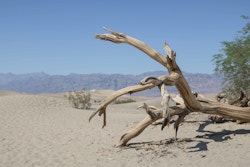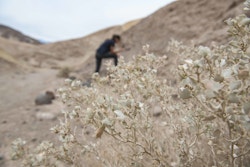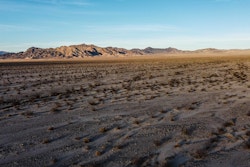Disaster risk: we are both the problem and the solution
According to the IPCC, climate change is already affecting every inhabited region across the globe, with extreme hot weather, heavy precipitation and droughts affecting different regions. Every year, the International day for disaster risk reduction takes place on October 13th; according to the United Nations, this day aims to highlight people and communities around the world who are reducing their exposure to disasters and raising awareness about the importance of reining in the risks that they face.
As highlighted by Katia Nicolet, our marine biologist, 2021 has seen many disasters occurring across the world, directly linked to climate change. If, as humans, we are both victims and responsible for such events, we also have solutions to reduce the risk of such disasters to happen.

Gulf of Gonâve - Haiti
“The IPCC report is a code red for humanity. The alarm bells are deafening, and the evidence is irrefutable: greenhouse gas emissions from fossil fuel burning and deforestation are choking our planet and putting billions of people at immediate risk.”
Rising temperatures
This year, hundreds of scientists have complied thousands of peer-reviewed papers to bring the most accurate knowledge on climate change, and the results are clear: humans are changing the earth’s climate in “unprecedented” ways, unseen for hundreds of thousands of years.
The current global temperature is already 1.1˚C above the pre-industrial average, and it keeps on rising. To avoid the collapse of major ecosystems, we must keep this warming under 1.5˚C above pre-industrial average. Alarmingly, current government actions will result in a warming closer to 3.5˚C!
This year is the last year we have to act. By the next IPCC report, it will be too late to prevent the worst of the climate crisis.
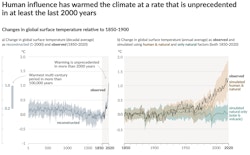
While the numbers might be confusing, while “1.5˚C” might not seem like much, we have all felt the impacts of climate change this year. We have all witnessed crisis after crisis on the news: images of floods, of droughts, of fires. So many that a new disaster quickly shadows the previous one, becoming drowned in the sea of bad news, only interrupted by yet another lockdown and a rising number of zoom meetings.
But we cannot get used to this. We cannot forget this year’s climate disasters and accept them as the new norm. This is not normal. And we – humans – are the only ones that can fix this.
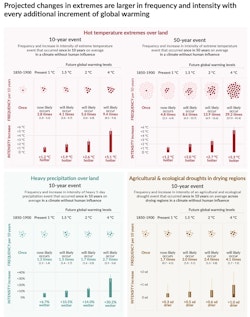
Extreme weather events in 2021
In a new study from the United Nations, climate related disasters increased five-fold in the last 50 years. And this trend will only accelerate. Every year, it seems, we are breaking some new temperature record or experience a new anomaly. This year, after an abnormally cold winter in the Norther hemisphere, temperatures raised quickly to reach new high temperature records. In Canada, 49.6˚C were observed this summer. Not Death Valley, Canada! Other disasters, like heavy precipitations, impacted countries previously untouched by climate change. 209 people died in Germany and Belgium from floods, when the equivalent of two months’ worth of rain came down in two days.
But that’s not all, critically high temperatures were also measured in Hong-Kong (new record in May) and the United States, where low precipitations and high temperatures led to severe wildfires. Northern Asia had temperatures up to 3˚C warmer than usual in late spring as well.
If we only look at the month of July 2021, here are the list of climate disasters and anomalies registered around the world:
- Temperatures in Europe and the United States reached above 40˚C in some locations.
- Flash floods in Arizona.
- New York experienced severe floods after the passage of hurricane Elsa
- Severe wildfires in California.
- Torrential downpours and floods in London.
- Flash floods and landslides in Turkey.
- Severe floods in Belgium, France and Germany.
- Tornado in Canada.
- Severe floods in India.
- Exceptional wildfires in Siberia.
- Extended floods in China.
- Landslides in Japan.
- Wildfires in Greece, Turkey and Italy.
It is still hard to estimate the number of lives that we lost this year due to climate disasters across the world.
Just like the COVID pandemic, maybe the world needs a tally for the number of climate-induced deaths and displaced people. If the number of starving children doesn’t do it, maybe a sum of the global impact of climate change on the world’s economies will finally spring our leaders into action.
Because this is the biggest crisis humanity has ever faced. Far greater than any war, than any economic recession, than any pandemic. There is no healthy population on a dead planet, there is no economy on a dead planet, there is no future for our children on a dead planet.
We must act. Now.
They actively participate in the reduction of disaster risk
A tethered wing like a kite that harnesses energy far beyond the reach of conventional tower-mounted wind turbines… Such is the groundbreaking technology being deployed by EnerKite to convert the constant energy of high-altitude winds into electricity.
Imagine that all surfaces exposed to the sun can produce electricity. That dream has become a reality thanks to Heliatek with its flexible and self-adhesive photovoltaic panels, which can be positioned anywhere you like, taking solar energy production to a whole new level.
This is the story of a clay fridge that does not require any source of energy to provide its users with refrigerated foodstuffs in an area of Morocco where 45% of rural areas have no access to electricity. Discover the sustainable action of this community in Morocco.
To go further
Join a growing community of practices on Nature-based-Solutions to reduce disaster risks - Unesco
Attributing extreme weather to climate change - Carbon brief
« Il y a une demande de compréhension de plus en plus forte du lien entre catastrophes climatiques et activités humaines » - Usbek et Rica
Global Warming of 1.5 ºC - IPCC
